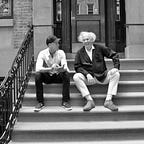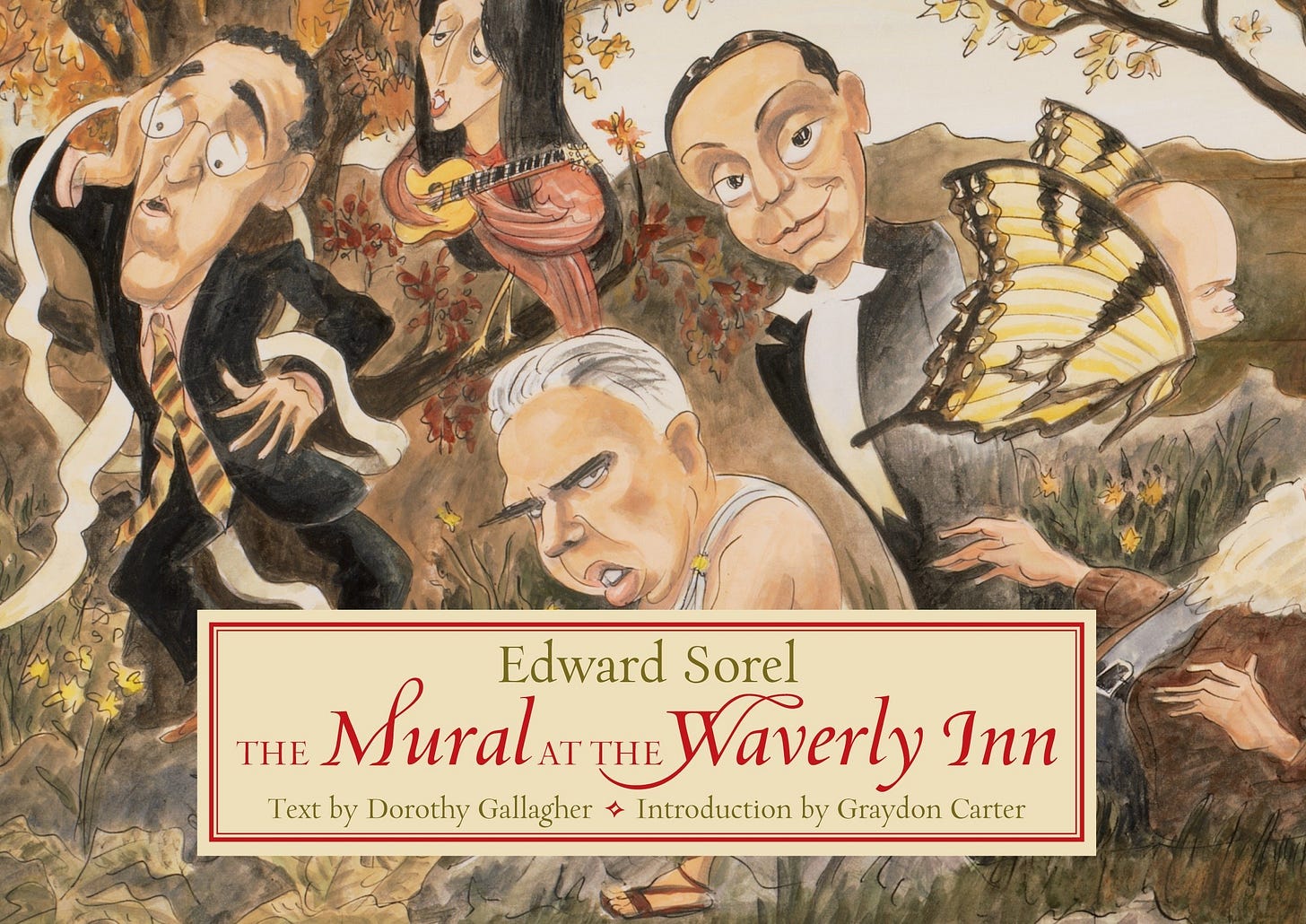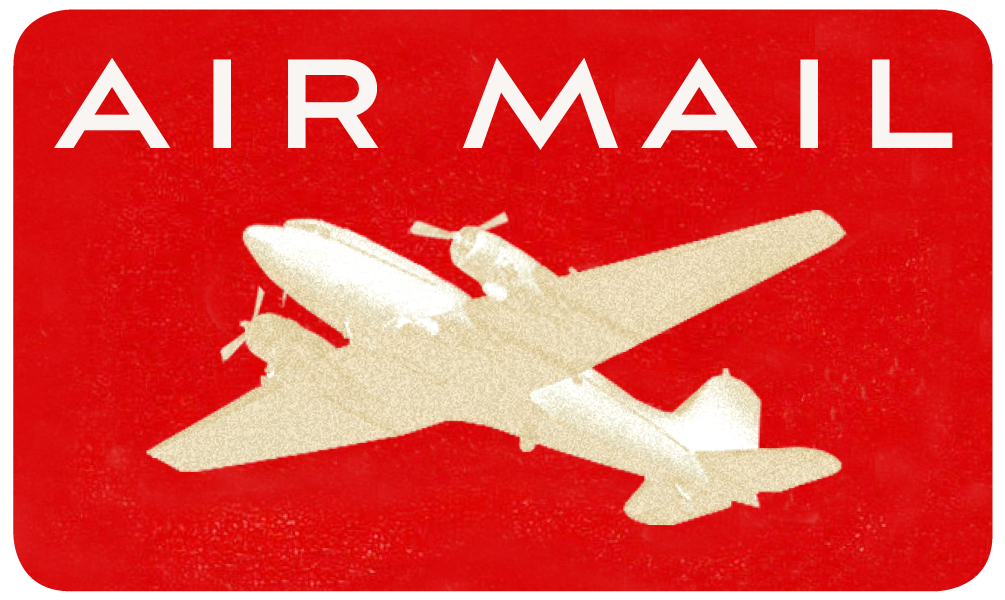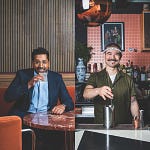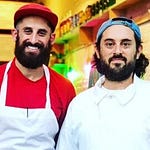Join me in welcoming Graydon Carter on Broken Palate. I recently had the privilege of sitting down with the legendary editor, co-founder of Air Mail, and owner of the iconic Waverly Inn in the West Village for a conversation on the relevance of critics, what it’s like to be the target of Trump’s ire, the state of New York City, and more.
Turns out, we have a ton in common, given he loves owning restaurants and storytelling and so do I. While I miss the Vanity Fair days when he was running the show, I am now a huge fan of Air Mail and always look forward to my weekly edition.
Founded in 2019 by Graydon and Alessandra Stanley, Air Mail is essential reading about politics, art, literature, style, fashion, and beyond. Prior to launching Air Mail, Graydon wrote for Time and Life, co-founded Spy magazine, served as editor of The New York Observer, and was the Editor-in-Chief of Vanity Fair from 1992 to 2018.
I hope you enjoy our chat in the audio above, edited down to 15 minutes. The transcribed conversation, below, has also been edited.
On opening Waverly Inn
John: Why open a restaurant?
Graydon: Well, ignorance, for a start. I was having dinner with Roberto Benabib at Elaine’s one night. Roberto’s a television showrunner and he was about to do Weeds, I think. And he lived around the corner. I said, "I saw a sign that said the Waverly Inn's for sale." He said, "Yeah, I saw that." I said, "Well, why don't we buy it?" And he said, “Sure.”
I knew restaurants from the customer end of things. I'd never even been in a restaurant kitchen before, but I knew what I wanted at the other end.
In those days, almost all the restaurants in the Village were Italian. We wanted American comfort food and white tablecloths and red banquettes and a decent wine list and a mural. I wanted a mural because I love restaurants with murals. And so we took it over with Sean MacPherson and Eric Goode — who know how to run restaurants. The smartest thing we did was to bring in Emil Varda to run the place. He’s the heart and soul of the Waverly and he’s been there pretty every night since we opened — pandemic notwithstanding.
We spent a lot of money to make it look like we hadn't done anything at all. It's been around now for a hundred years. I spent months with Ed Sorel working on the mural. And Ed is, I think, the greatest caricaturist alive. We fought a lot over who would be in the mural and in time it came together. We had a big opening night and we were profitable from six months on.
On the “short-fingered vulgarian”
John: Tell me the story about Trump. Is the quote still on the menu?
Graydon: As soon as he discovered Twitter, he started tweeting really negative things about me: That I was sloppy. That I was going to lose my job. That my wife thought I was a loser. That I was grubby. That I produced a failing magazine and a failing restaurant. At one point he wrote — he'd never been to the restaurant — “Waverly Inn for the worst food in [the] city." So we thought, "Fuck it. Let's put this at the top of the menu.” [Here are some highlights of the feud from Helen Rosner, which starts in the late ‘80s when Carter started referring to Trump as the “short-fingered vulgarian.” ]
On the relevance of restaurant critics

John: Do you think critics matter like they used to?
Graydon: I do think word of mouth is the strongest advertisement in the world. And if your word of mouth is good, it'll help. And if the word of mouth is bad, it can harm really quickly. Restaurants in the city are filled. My feeling is that if they do a good job for you tonight, you'll come back another time. If they do a bad job for you tonight, you'll find another place to go. It’s as simple as that.
John: I think you always have the question of what's the most important thing in a restaurant, whether it's the food, the service, the ambiance. Everyone says it’s a combination of all of it. But my take is that reputation actually drives everything. Because of the way information is now, if you can quickly get a reputation, a lot of people will just follow it.
Graydon: Yes, but you have to deliver. And if you’re the customer, you just want to be treated nicely. You don't want an attitude. The moment you have a front-of-the-house person with attitude, I think you're done. Somebody’s coming and they’re paying good money to eat and have a nice time. Your job is to treat them really well and make them feel wanted. Similarly, when a waiter goes home and turns on Netflix or HBO. They want a lot of people working really hard to entertain them for a half-hour or an hour. We're all in the service industry.
Somebody’s coming and they’re paying good money to eat and have a nice time. Your job is to treat them really well and make them feel wanted. Similarly, when a waiter goes home and turns on Netflix or HBO. They want a lot of people working really hard to entertain them for a half-hour or an hour. We're all in the service industry.
On missing restaurants that have closed
John: Are there restaurants you miss that are no longer around?
Graydon: Yes. At Time in the old days, there used to be these restaurants way over in the far West 50s, Tout Va Bien and Chez Napoleon. It's where all the old Time and Life magazine hands used to go because you could eat lunch for $2.50 with a glass of wine included. I miss Da Silvano but I get tired of that floor show if you know what I mean. . . Most good restaurants are still around.
Looking for news for worldly cosmopolitans? Readers of Broken Palate can receive a free 7-day trial of Air Mail.
On Graydon’s favorite spots aside from his own place
John: Do you have a favorite restaurant outside of your own?
Graydon: I get that question all the time and I think it's kind of tricky. Well, Il Cantinori we love. I think I went to their opening night, 30-odd years ago. And Sant Ambroeus on West 4th. I happen to think Cipriani food is really good. (The one in SoHo.) We go to Mr. Chow and Claudette around the corner from us and Le Bernardin as our go-to fancy restaurant.
On the similarities between running a magazine and running a restaurant
Graydon: At a magazine, you take all these disparate elements from all around; things you read, things you hear, and you put them together into what one hopes is a palatable package for the reader. The chef at a restaurant takes all these ingredients from all these places — you can do it yourself if you want — but he'll do it for you and put it on the table and hopefully please you. It's very similar.
John: You're telling a story and you're trying to create a point of view. And if the point of view is very strong, your odds of owning the customer, just like a reader, are far greater.
Graydon: If you treat your whole business around the experience of one customer or one reader, then if they leave happy, chances are others did as well.
On the effects of social media on dining
John: When Serge Becker and I were designing Hancock St., we always think that the way people are in restaurants with their phones and social media has kind of destroyed the way people just live, right? But specifically at dinner, it's tragic: If you look at a table of six, no one's ever really there. And I don't think anyone — if you're of a certain age — you're never going to know what it was like to go have dinner with six friends.
Graydon: There's no way of stopping it, is there? At boarding schools, they shut out the Wi-Fi and the signal at 10 p.m. so nobody can be on their screens. You could just say, "No screens in the restaurant. . . ."
John: Similar to magazines: I always think that if you take someone of a certain age and you handed them a magazine and they never saw a magazine before —
Graydon: It's so brilliant. You don't have to plug it in. You can take it anywhere. You can give it to a friend afterward. You recycle it. It's great looking. If you go over to Casa Magazines on Eighth Avenue, there are like 10,000 magazines from around the world put out by hipsters. Young people love magazines the way they love vinyl. The monthly consumer magazine may be going the way of the landline, but magazines themselves, if you invest in the quality of them, I think they'll stick around.
On the rise of private clubs
John: What's your take on all the private clubs coming to New York, and do you think New York City is a private club place, like London?
Graydon: Well, there's private clubs, old private clubs, like the Knickerbocker, or the Brook, or the Cosmopolitan, or the Colony. That's a different sort of thing and those will survive. And I just don't know: New York is more egalitarian, that's number one. And number two: There are so many restaurant choices here that it might be hard. But Jeff Klein made a success with it in LA with the San Vincente Bungalows, but there are fewer restaurant choices there in a way, even though LA is a great food capital. New York is unique in that you can have some of the finest Italian food in the world, some of the finest Chinese food in the world, some of the finest Japanese food in the world, or the finest American food in the world. Most other cities don't have that variety, that level of quality.
On the state of New York, post-pandemic
John: Everyone talks about [the city] bouncing back and crime and safety. I don't know if you're a fan of Eric Adams or not ….
Graydon: He’s sort of putting himself slightly in the Jimmy Walker mode of being Mr. Going Out at Night and being at every party. You don't want a mayor who's a pencil pusher, but you don’t want him to be the last guy to leave Zero Bond each night, either.
Things feel pretty much back to normal in the Village. In fact, with restaurants on the streets, why would we ever put them back in buildings? Keep them out on the sidewalk. They bring the streets to life. Can you imagine Paris without cafes spilling out onto the sidewalks?
New York’s not as dangerous as it was in the ‘70s, but it's not as safe as it was in the ‘90s.
[As the pandemic wore on,] I was encouraged at first. I thought rents would go down, which would bring in more young people. But rents have skyrocketed. And. . . whether people work three days in the office and four days at home, or four days in the office and three days at home, it is never going back to five office days a week — at least I don't think so. I think a societal shift has taken place and it’s going to last.
Quick Takes
1. Favorite book of all time: Act One by Moss Hart.
2. Quote to live by: Prepare for the worst but hope for the best.
3. Biggest mistake: Where do I begin?
4. Favorite possession: My 1951 Chevy Woody wagon, which I’ve had now for 30 years.
5. Warhol or Picasso: Picasso.
6. Favorite magazine cover: Almost any issue of Vanity Fair from the 1930s.
7. Last meal: I was on my own so I ordered the curry from Cipriani and watched The Great Escape. Oh, you mean what I would have for my last meal? The hamburger from the Waverly Inn—and have it at the Waverly Inn with my family.
8. Person to interview that you have yet to meet: Well he’s dead, but I would have loved to have spent time with Peter Ustinov.

